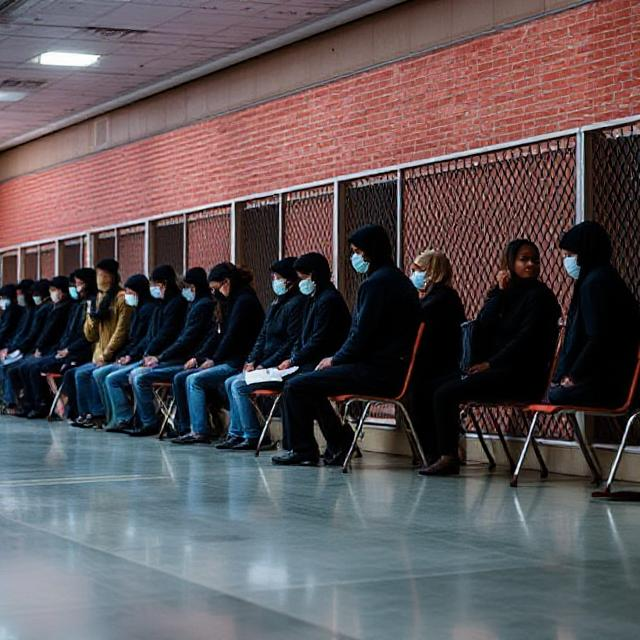Falling asleep quickly can feel like a challenge, especially if you’re stressed, anxious, or your mind is racing. However, there are several effective strategies you can use to help calm your mind and body, making it easier to fall asleep in under 5 minutes. These techniques focus on relaxation, breathing, and establishing a calming environment.
Here are some methods that may help you drift off to sleep faster:
1. 4-7-8 Breathing Technique
This is a simple breathing technique that can help calm your nervous system and prepare your body for sleep. It promotes relaxation and can make it easier to fall asleep.
How to do it:
- Sit or lie down in a comfortable position.
- Close your eyes and breathe out fully through your mouth.
- Inhale quietly through your nose for a count of 4.
- Hold your breath for a count of 7.
- Exhale completely through your mouth for a count of 8.
- Repeat this cycle for 4 breaths.
This technique helps relax your body by slowing down your heart rate and reducing anxiety, making it easier to drift off.
2. Progressive Muscle Relaxation (PMR)
Progressive Muscle Relaxation is a technique where you tense and then relax different muscle groups in your body. This helps to release physical tension, which in turn helps calm your mind.
How to do it:
- Start at your toes and work your way up to your head.
- Tense the muscles in one part of your body (e.g., your toes) for 5-10 seconds, then release the tension and relax for 15-20 seconds.
- Move to the next part of your body (e.g., your calves) and repeat the process.
- Continue all the way up to your head, focusing on releasing tension in each area.
As your body releases tension, your mind will follow, allowing you to relax and fall asleep faster.
3. Visualization (Mental Imagery)
Visualization can be an effective tool for tricking your mind into relaxing and preparing for sleep. By imagining a peaceful and calming scene, you can divert your mind away from anxious thoughts or stress, allowing you to fall asleep more quickly.
How to do it:
- Close your eyes and take a few deep breaths.
- Picture a calm and peaceful place, like a beach, forest, or mountaintop. Imagine the details—what you can see, hear, smell, and feel.
- Focus all of your attention on this scene and let it absorb your mind. Picture yourself fully immersed in the environment, allowing any worries or stresses to melt away.
- If your mind starts to wander, gently bring it back to the peaceful scene.
By focusing on this relaxing imagery, you help your body switch into “rest mode,” making it easier to fall asleep.
4. Use the “Military Method” for Quick Sleep
The Military Method is a technique that has been used by the U.S. military to help soldiers fall asleep quickly, even in stressful situations. It combines relaxation, breathing, and focusing on calming your body.
How to do it:
- Start by relaxing your face. Close your eyes and let the muscles in your face (including your tongue, jaw, and the muscles around your eyes) completely relax.
- Drop your shoulders to release any tension, followed by your upper and lower arms.
- Exhale and relax your chest, then relax your legs, starting from the thighs and working your way down to your feet.
- Clear your mind of any thoughts. If you find your mind wandering, try to focus on one of these phrases: “Don’t think,” or “Relax.”
- After 2 minutes, you should feel relaxed enough to fall asleep.
This method involves both physical relaxation and mental focus, which can significantly reduce sleep onset time.
5. Create a Sleep-Inducing Environment
Sometimes, external factors like your environment can interfere with your ability to fall asleep quickly. By optimizing your sleep setting, you can help your body know that it’s time to rest.
How to do it:
- Dim the lights: Bright lights can signal your brain that it’s still daytime. Use low lighting in your bedroom to create a relaxing ambiance.
- Keep your bedroom cool: A cool room (around 60-67°F or 15-20°C) promotes better sleep. Make sure your blankets and sheets are comfortable.
- Limit noise: Use earplugs or white noise machines to block out disruptive sounds that could prevent you from falling asleep.
- Remove screens: Avoid using your phone, laptop, or TV for at least 30 minutes before bed, as blue light can disrupt your body’s natural production of melatonin, the sleep hormone.
By setting up a sleep-friendly environment, your body will begin to associate your bedroom with rest, making it easier to fall asleep.
6. Mindfulness Meditation
Mindfulness meditation is an effective technique for calming your mind and preparing for sleep. By focusing on your breath and becoming aware of the present moment, you can reduce the racing thoughts that keep you awake.
How to do it:
- Sit or lie down in a comfortable position.
- Close your eyes and take a few deep breaths.
- Focus your attention on your breathing. Notice how the air feels as it enters and leaves your nostrils.
- If your mind starts to wander, gently bring your focus back to your breath, without judgment.
- Continue breathing deeply and focusing on the present moment until you feel relaxed and ready to sleep.
Mindfulness meditation can help clear your mind, reduce anxiety, and improve your overall sleep quality.
7. The “Paradoxical Intention” Technique
The paradoxical intention technique works by making sleep seem less stressful. It involves trying to stay awake instead of trying to fall asleep, which can reduce performance anxiety around sleep and make it easier to drift off.
How to do it:
- Instead of focusing on falling asleep, tell yourself, “I’m going to stay awake as long as I can.”
- This takes the pressure off and can often result in you actually falling asleep quickly because you stop actively trying to sleep.
This technique works by reducing the anxiety that can come with trying too hard to fall asleep.
8. Avoid Stimulants and Heavy Meals Before Bed
Certain habits before bedtime can interfere with your ability to fall asleep quickly. To make it easier to sleep in under 5 minutes, avoid:
- Caffeine: Found in coffee, tea, chocolate, and some sodas, caffeine is a stimulant that can keep you awake. Try to avoid caffeine for at least 4-6 hours before bedtime.
- Heavy meals: Eating large meals late at night can cause discomfort and indigestion, making it harder to fall asleep.
- Alcohol: While alcohol may make you feel drowsy initially, it can interfere with the quality of your sleep and cause you to wake up during the night.






